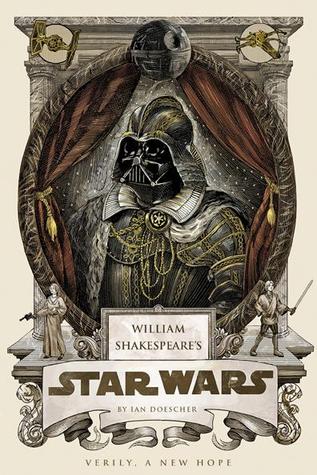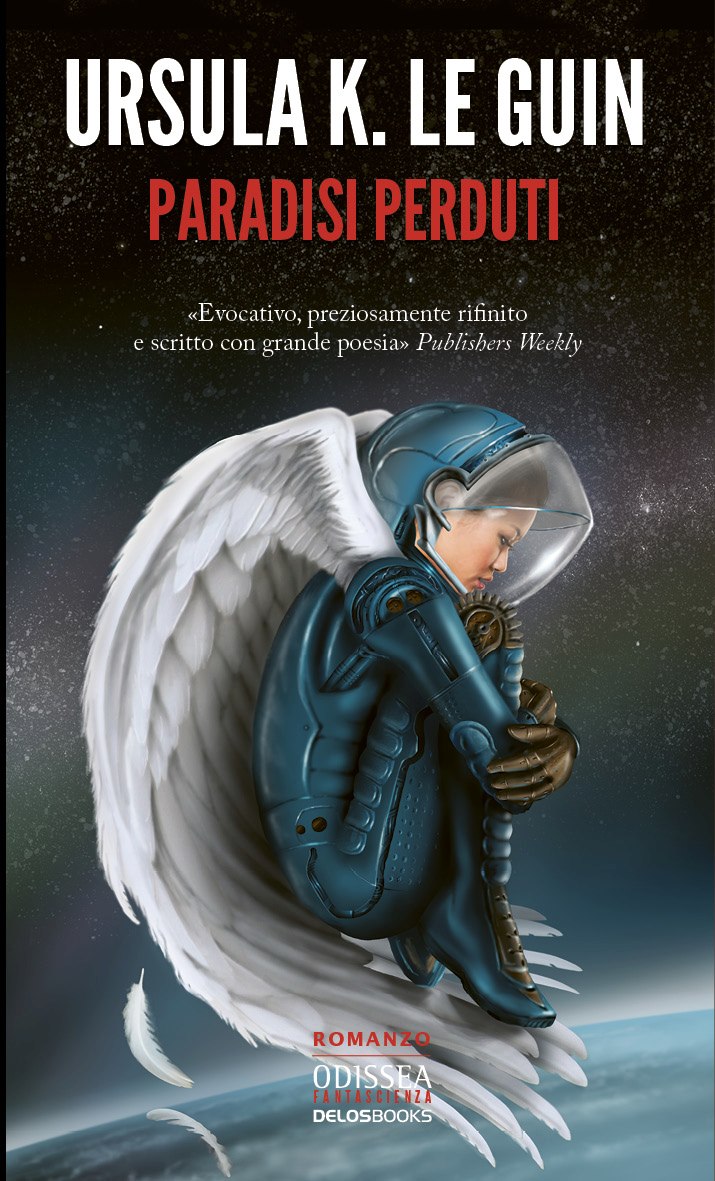I managed to pull this stunt off last year where I accurately predicted which book would be awarded the Nebula in the novel category. I’m not sure I can do it again, but I’m going to give it a shot. Unlike last year, I haven’t actually read all of the books on the list (though I’ve hit samples of all of them), but handicapping who will win the award isn’t about my preferences as a reader. I think it’s a dead heat between Neil Gaiman’s Ocean at the End of the Lane and Ann Leckie’s Ancillary Justice. When I started writing this, I predicted a Gaiman win, but in the process of writing, I think I’ve changed my mind.
I almost just went with Ancillary Justice for the win — the novel just won the Arthur C Clarke, BSFA and a whole raft of other awards — but I flinched when I learned it was a debut novel. Very few debut novels have won the Nebula, though there is some recent precedent with 2010’s Windup Girl. Nebula voters are professional writers, and I think there’s a preference for writers who have paid their dues, so to speak. (A joke, you see, because you don’t actually have to be a member of SFWA to be nominated. Bad joke.) Ancillary Justice really has Nebula written all over it. It’s solidly science fiction, but isn’t wanking about tech too much, letting the reader experience the futuristic dislocations as the character does. It’s got the right mix of conceptually interesting science fictional ornament, with dazzling near fantastic explorations of culture to charm the New Wavers and the fantasists. It’s a strong novel with a broad appeal to very different kinds of science fiction readers. Plus it’s fun and cool.
I adored A Stranger in Olondria, which set off all the heart fireworks I have for Ursula K Le Guin. If I had a vote, this would be mine. But this is also a debut novel, again. Nebula voters also seem to have a clear preference for science fiction over straight fantasy, unless your name is actually Le Guin or Bujold. (Which goes back to the debut author thing, somewhat circularly, because both Le Guin and Bujold were well established writers of both sf & f when their fantasy novels won. ) The other fantasy novels that have won are set contemporary, like American Gods, or Among Others. This will become a refrain of sorts in this essay, but as much as I loved Olondria, I just don’t think it has broad enough appeal to the more science fictionally minded of the voters.
Two of the nominees are historical fiction of a sort: Helene Wecker’s The Golem and The Jinni, which is set in turn of the 20th Century New York, and Hild by Nicola Griffith, which is about a 7th C British abbess. I enjoyed The Golem and the Jinni, partially because I have some unhealthy obsessions about the Gilded Age and the rise of labor movements and the like — ask me about the Panic of 1893 and I will bore. you. to. death. — but that’s ultimately a boutique interest. Fair or not, I also think The Golem and The Jinni will be dismissed by some as “just a romance.” My two cents: the inclusion of romantic elements is less worrisome to me than the rushed and unsatisfying conclusion.
I haven’t read Hild, so I went rolling through reviews to get a feel for reader response, and this line in an io9 review struck me as ominous for its chances: “Call it skeptical fantasy, or an epic that treats magic as politically-charged superstition rather than an otherworldly power.” Now I happen to think that’s really neat — a twisting of the genre conventions — but I think it’s going to result in readers wondering how this story is fantasy at all. Either way, I think historical fantasy is a long shot to win the Nebula. Historical science fiction, sure, like Blackout/All Clear which won in 2011, but not fantasy. Again, the bias towards science fiction novels is clear when you look through the past winners. Throw in historical fiction as well, and I think a fair number of readers are going to nod off.
The question of how the novel fits into the science fiction genre dogs We Are All Completely Beside Ourselves as well. Set in contemporary America, with a set up that, while unusual, is not unheard of, the book more explores the intersections of scientific theory, culture, and the family. I would argue that it is science fictional, in that it’s fiction about science, but not everyone is going to agree. The familiar is sometimes the most alien thing we know. That I feel compelled to make this argument means Fowler’s book is likely too much of an edge case to win. It is a really lovely novel, by a well established writer in clear control of her craft, just not science fictional enough.
There are two more space opera-ish jaunts like Ancillary Justice: Fire With Fire by Charles E Gannon and The Red: First Light by Linda Nagata. Fire with Fire is kinda cozy in a way: conventionally plotted, with a Golden Age sensibility from prose style to its philosophical concerns. That will invoke a lot of nostalgia for many voters. But, as I’ve said before, the Science Fiction and Fantasy Writers of America is a coalition government, and I don’t think Fire with Fire will resonate for people who prefer fantasy. It’s conventionality is also a mark against it; Fire with Fire feels like a period piece, which is weird considering it’s set in the future.
When I went to order The Red: First Light, I was surprised to discover it wasn’t stocked in my library. This lead me to the revelation that The Red: First Light is an indie title. I didn’t even know you could do that! While I don’t think there’s a real war going on between indie and traditionally published writers — Tor.com, for example, posted a glowing review of The Red: First Light — but the SFWA membership leans heavily to the traditionally published, and a lot of writers know each other from their professional ties under the same imprint. (And it should be observed that Nagata started out traditionally published.) I’m bullshitting here a little, because I haven’t read The Red: First Light. That it isn’t even stocked in my (very good public) library makes me think it’s pretty well screwed though.
I’m sure there’s some complicated formula which would account for The Red: First Light’s indie status versus the debut novel status of Ancillary Justice, but then when you throw in yet another science fiction novel set in the future with space ships and a lot of military/politics like Fire With Fire, the math gets too complicated. Part of the problem here is that there are too many novels that I think fit into the same broad sub-genre, and I think it’s going to diffuse the voters that are inclined towards that sub-genre in the first place. In other words, it’s going to split the vote. (People haven’t been throwing awards at either Nagata’s or Gannon’s novels though, so I’m thinking they don’t stand a chance, just that they’ll draw away from Ancillary Justice.)
Maybe that gives Ocean at the End of the Lane, which is not so closely matched with other nominated novels, a leg up. (And I’m not trying to imply that the writers of SFWA are all huddling in their narrow sub-genres or something, but the heart wants what it wants.) Even though Ocean at the End of the Lane is a fantasy, it’s the kind of fantasy that Nebula voters seem to embrace: set in the here and now, but with a fantastic twist on the everyday that disrupts the readers perceptions. Gaiman is clearly at the height of his powers as a craftsman of words, and his prose is tight as a drum. Like Among Others, which won two years ago, it’s also got a nostalgic component, as the main character reminisces upon his childhood with a dewy sense of wonder. There’s also a lot of fan service to readers and nerds, like long descriptions of the main character reading and panegyrics to the wonders of literature.
I actually found this fan service somewhat tiresome in The Ocean at the End of the Lane. I wouldn’t go so far as to call it calculated, but there was definitely a part of me that thought, how easy it is to make your readers (who are, after all, by definition readers) love your main character by having him perform obeisances to the act of reading. The Ocean at the End of the Lane’s protagonist is also an artist of some stripe — writer, maybe — and I think all the ruminating on art and memory and storytelling is going to play to voters who are artists themselves. Writers writing about writing is always a good bet when writers vote on writing awards.
I’ll be clear: I don’t think Gaiman is pandering, even though I’m making fun a little here. The themes of The Ocean at the End of the Lane, including Gaiman’s tendency to insert characters who are artist-observers, are right in line with the themes he’s been exploring his entire writing career. I think Ocean at the End of the Lane sits quite merrily with Graveyard Book (which won the Newbery) and Coraline (which won the Nebula for the novella) in a triangulation of the themes of violence and childhood and memory and matriculation, traversing the uneasy border that separates us grown ups from our childhoods. This has heretofore been a winning mix of themes for Gaiman.
I think my real reticence to call it for Gaiman comes from the slight what the fuck angle to what all happens in Ocean at the End of the Lane. The crisis of the novel is real…let’s say metaphorical, and I would be hard pressed to tell you what exactly that all meant. I’m assuming someone with a more writerly perspective might appreciate this more than I did, but it’s entirely possible that the opposite is true. (Or both; whatever.) The fact that this novel reiterates common themes to Gaiman’s work is also a strike against it: Ocean is sleepy, safe, and treading familiar ground.
Ancillary Justice, by contrast feels energetic and ambitious. Even if it has the occasional first-writer misstep, the book feels like a leap into the black. No, of course Leckie isn’t reinventing the wheel here — nerds more exacting than I can create the list of antecedents (like the Culture novels) — but she is inventing her wheel, and it’s just a kick to be along for the ride. Nor was Ocean nominated at all for the Hugo, which indicates there isn’t this critical whiteheat around it like Ancillary Justice. Given that voting closed last month, maybe that’s not quite a factor, but I do think it’s an indicator.
So, anyway, there you have it. I’m predicting Ancillary Justice for the win. I won’t be a bit surprised if Gaiman wins, just to hedge a little.
Now I’ll have to start reading the novels up for the Hugo.
Just kidding, we all know Wheel of Time is a cincher.


